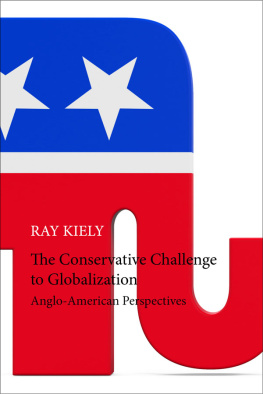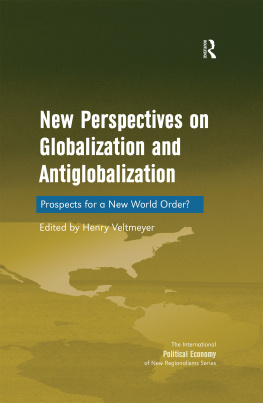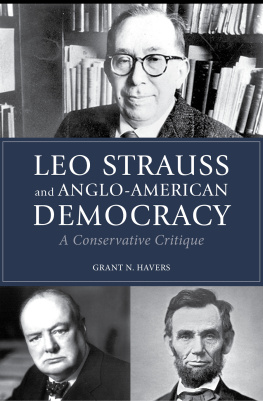Ray Kiely 2020
This book is copyright under the Berne Convention.
No reproduction without permission.
All rights reserved.
First published in 2020 by Agenda Publishing
Agenda Publishing Limited
The Core
Bath Lane
Newcastle Helix
Newcastle upon Tyne
NE4 5TF
www.agendapub.com
ISBN 978-1-78821-096-6 (hardcover)
ISBN 978-1-78821-097-3 (paperback)
British Library Cataloguing-in-Publication Data
A catalogue record for this book is available from the British Library
Typeset by Newgen Publishing UK
Printed and bound in the UK by CPI Group (UK) Ltd, Croydon, CR0 4YY
During the writing of this book, I have appreciated the music of (among others) Low, Spacemen 3 and early Spiritualized, This is the Kit, Julia Holter, Nadine Khouri, Funkadelic, Joy Division, Gene Clark, Laura Gibson, nineties Mercury Rev and The Beatles. This was a tricky book to write for a number of reasons, so many thanks to the following people: Tim Bale, Peter Brett, Denis Cattell, Jean Francois Drolet, James Dunkerley, Jane McAllister, Phil Mizen, Alfredo Saad-Filho, Rick Saull, David Williams. Many thanks to Peter, Rick, Alfredo and David in particular for detailed comments on the manuscript and for helping me to avoid some howlers. At Agenda, thanks to Alison Howson. Also thanks to family, some of whom deserve a special mention this time Amy, Lee and Sophie, Louise, Sina, Maryam and Yasmin (but not those dogs!), Tristen, Grace and Eddie and, above all, Will and Ella, to whom this book is dedicated.
), who in turn were at pains to point out that they were not anti-globalization per se. How could they be, when they drew on and utilized new technologies associated with globalization and organized across national boundaries? The argument used by these activists was that they were anti-neoliberal or corporate globalization, challenging NorthSouth and wider inequality, the growing power of corporations, the erosion of the public sphere and the public sector, environmental destruction and then, after 2001, Western militarism and liberal intervention.
More recent years have seen the rise of another kind of anti-globalization. Some of this also questions liberal military intervention, and to some extent the growing power of corporate elites, and sometimes there is hostility to ). We will see in the following chapters that this characterization is too simplistic and assumes that those wanting free movement of capital also want free movement of people, when in fact the picture is more complex than this.
These issues are outlined and analyzed in the chapters that follow; for now, this introductory chapter does three things. First, it provides a brief and basic introduction to the concepts of globalization and anti-globalization, as a precursor to more detailed discussion in the rest of the book. Second, it provides a brief introduction to conservatism, which again is discussed in more depth in later chapters, both generally and with specific reference to globalization. Third, it provides an outline of the structure of the rest of the book, summarizing the chapters that follow and how these are used to develop a broad argument about contemporary conservative globalization and anti-globalization.
What are globalization and anti-globalization?
: 136).
This suggests that globalization involves the expansion of social interactions above, beyond and in part below the nation state, and therefore the undermining of state sovereignty. This provides the basis for a politics that rejects globalization in the name of sovereignty, and in some respects this conforms to the case studies discussed in
What is conservatism?
: 31), whose views overlapped in significant ways with Hayek, thus argued that:
To be conservative, then, is to prefer the familiar to the unknown, to prefer the tried to the untried, fact to mystery, the actual to the possible, the limited to the unbounded, the near to the distant, the sufficient to the superabundant, the convenient to the perfect, present laughter to utopian bliss.
In 1933, : 1) traced conservatism back to the Garden of Eden, suggesting that Adam was the person who represented the qualities of contentment and stability. Eve was the innovator, eager for novelty, ready for reckless experiment. In this account, then, conservatism focuses on the tried and tested, and recommends caution rather than radical change.
: 34356).
Related to this point, and more important for our purposes, is the question: what if society is threatened with change that is so radical it represents a call to arms to defend the existing order, or if society has changed so radically that the existing order should not be defended? was thus on to something when he suggested that conservatism becomes conscious and reflective when other ways of life and thought appear on the scene, against which it is compelled to take up arms in the ideological struggle.
This is not insignificant as in many respects conservatives have continually argued that the familiar has been under threat since the French Revolution. This was the argument made by : 44).
For conservatives since 1789, the nature of the threat has changed over time. It has included abstract calls to liberty, equality and fraternity, internationalism, capitalism, anti-capitalism, anti-racism, feminism, anti-colonialism and democracy. In keeping with their pragmatism, many conservatives have made their peace with at least some of these threats. That they have done so might again suggest that conservatism is an ideology without principle, based on pragmatic adaptation to the status quo in the ways suggested by : 18).
This principle of course operates in different historical contexts, but we should not allow these differing contexts to substitute for an analysis of conservatism as a political position. But equally, we should not simply reduce this political position to a crude conspiracy theory, as though it were simply an ideology : 546).
If we take a more historical approach, we can see that conservatives were hostile to the initial impulses that led to the 1848 revolutions in Italy, France, Germany and the Austro-Hungarian Empire. Conservatives challenged liberal republicanism, anti-monarchism, liberal universalism and the recourse to abstract reason, all of which threatened the existing socio-political order. However, the defeat of these revolutions led the way to more doctrinal conservative positions (Huntington for instance, the Rye-Iron alliance promoted tariffs both for industries trying to develop in the face of established British competitors and agrarian groups suffering the consequences of declining agricultural prices.
Such alliances were conservative in nature. In contrast to the liberal republican nationalism of 1789 and 1848, a new conservative nationalism championed the centrality of the nation at the expense of individual liberty. Capitalist rationalization did emerge and in this sense the old regimes were changed, but at the same time they were not completely overthrown. These were in effect revolutions from above in which alliances based in the old order adopted and utilized technology, industrialization and science (Mayer : 143).
: 1213).
In this way liberalism and ).









